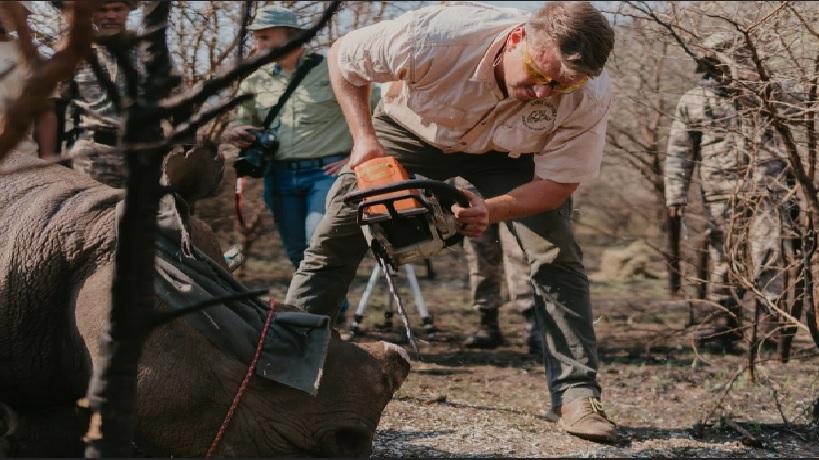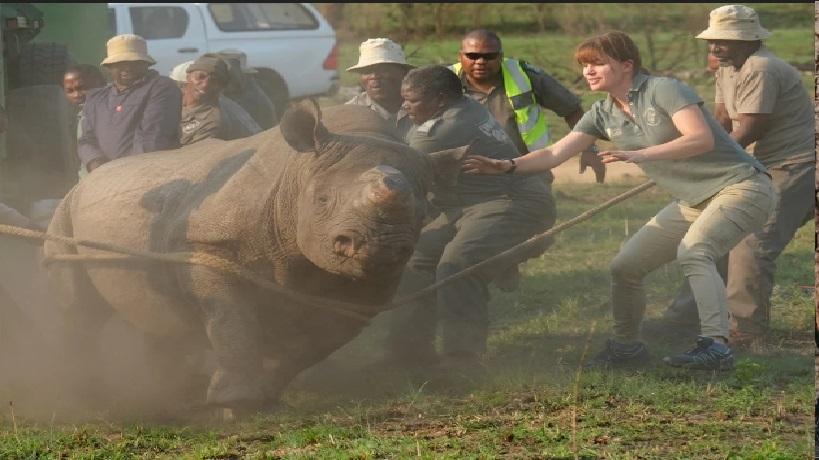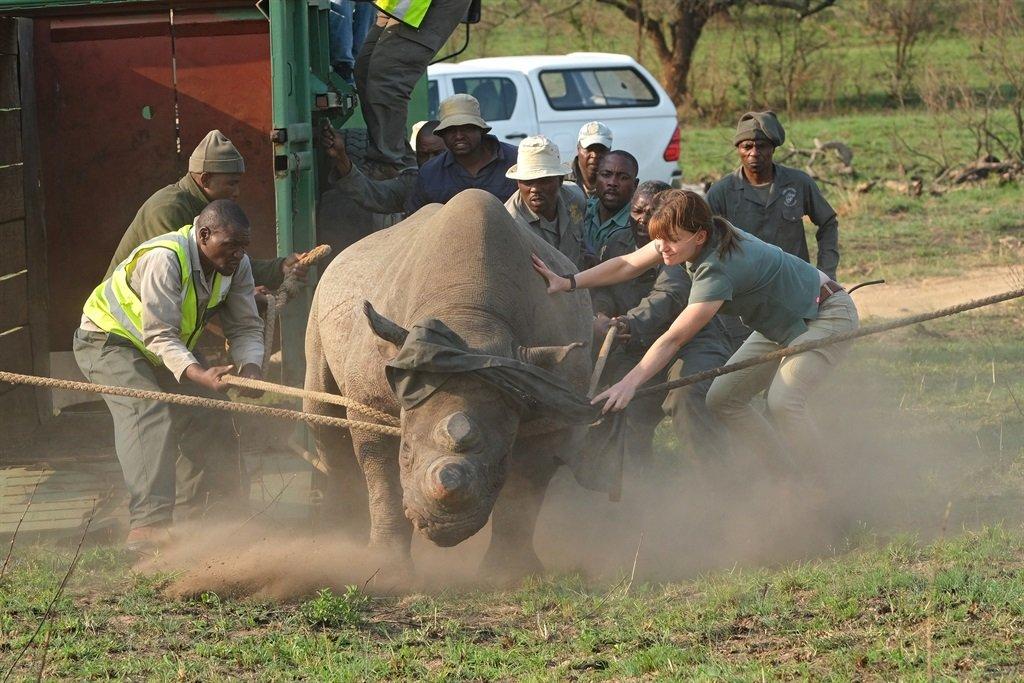Africa-Press – South-Africa. After six years in captivity, four orphaned black rhinos have been relocated to the Babanango Game Reserve in KwaZulu-Natal.
Due to poaching, some of them were orphaned as two-month or one-year-old calves.
Initially, they were in the care of the provincial authority, Ezemvelo KZN Wildlife, but the Black Rhino Range Expansion Project – a partnership between Ezemvelo and the Worldwide Fund for Nature (WWF) – relocated them last week.
Each rhino was safely loaded into a crate and trucked to the Babanango Game Reserve – a majority community-owned 20 000-hectare game reserve in the heart of Zululand.
They now form part of a new population that includes wild black rhinos that were selected and translocated from other reserves in the province. Some of those rhinos were airlifted because the terrain made it difficult for trucks to reach them.
PICS | Ice Age footprints shed light on north America’s early humans
“It is a big responsibility and a privilege at the same time for Babanango Game Reserve to be part of conserving these iconic species,” reserve conservation manager Musa Mbatha said.
Jeffery Cooke, the head of game capture at Ezemvelo KZN Wildlife, said the symbolism behind the release of the black rhinos could not be overstated.

“Under any other circumstance, [they] would have been lost to the species. It is a strong testament to the determination and commitment of not only the staff at the game capture facility, who spent thousands of hours caring for them, but also to the many donors and funders, some of them just school children, who gave willingly to ensure that these animals were given a chance.”
“The message is clear: we need to remain committed and united as a province to the task of saving this iconic species, even if it is one animal at a time.”
Black rhinos are listed as critically endangered on the International Union for Conservation of Nature Red List of Endangered Species. They are severely threatened by poaching and habitat loss.
Before their release into the reserve, each rhino was dehorned and fitted with a tracking device to ensure easy monitoring and aid in their protection.

Jacques Flamand, project leader of WWF Black Rhino Range Expansion Project, lauded the conservation partners’ work, saying that they devoted “their land, money and resources to black rhino conservation”.
“Without their support, this exercise would not be possible. Creating new populations of black rhinos is the [rhino expansion project’s] way of countering the devastating effects of poaching. It is wonderful that these orphans were rescued by Ezemvelo and now have a chance to become part of a new wild population.”
In a statement, the Emcakwini Community Trust, community stakeholders in the Babanango Game Reserve, said they were “honoured and privileged to welcome the arrival of the new black rhino orphans”.
“This occasion marks an important and significant step in the reintroduction of both endangered and threatened wildlife species onto our land. May they roam safely and freely again for the benefit of conservation and the wise education of our children for generations to come.”
Identified by their iconic hooked lip for browsing purposes, black rhinos are generally elusive and shy, but infamous for their explosive personalities when threatened.
For More News And Analysis About South-Africa Follow Africa-Press






